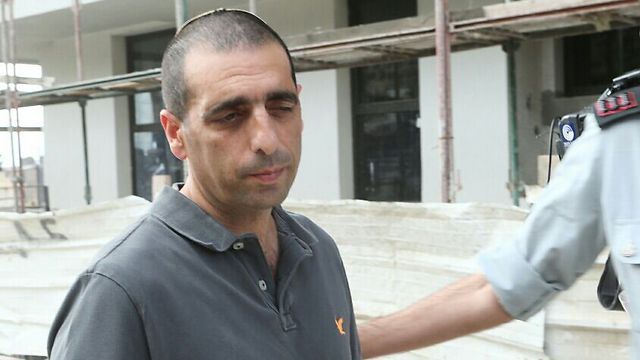
Burying the truth with a plea deal
Op-ed: The Buchris plea bargain serves no one. This affair should have reached the court, because all the difficult questions it raised remain unanswered.
It’s surprising how the ritual repeats itself. It begins with a complete denial, “such things never happened,” which good friends rush to support. And, how embarrassing, some women too. “I know the family,” one woman said, as if that had anything to do with the credibility of the denial.
Then, a series of commanders and subordinates come to the aid of the different Buchrises, praising a glorious military service – as if that has anything to do with the credibility of the denial – and having something to say about “that little whippersnapper” who dared file a complaint against him.

And then comes the State Attorney’s Office, or in this case the Military Advocate General, and reaches a plea bargain over the complainants’ head. A plea bargain which elegantly presents the complainant as responsible for the actions too. Consensual forbidden sexual relations. In other words, it’s forbidden, but she wanted it too. And so Buchris, together with his army of attorneys, sponsored by a lazy Military Advocate General, can argue – and he has already done that – that his decision to reach a compromise in which he admits stuff was simply in order to spare his family any suffering and end the saga.
As outrageous is the statement that this plea deal serves everyone. Not just Buchris, God forbid, who was initially accused of rape and is now facing a half minor charge, but the complainant as well. “She won’t have to undergo the humiliation involved in a cross-examination on the stand,” one of the lawyers clarified Wednesday. “And the public interest will benefit too,” a Military Advocate General added.
But as part of what is defined here as the public, I find it difficult to understand what interest exactly is going to benefit from this deal. This affair should have reached the court, clear and simple. Without any leniency, without shortcuts, because there is no other way to find out where the truth lies.
It’s understandable, not acceptable of course, but understandable that the army has an interest in closing this case, as soon as possible. They have enough on their hands with the Elor Azaria trial. It doesn’t take a genius to understand that no matter how that trial ends, no matter what the judges decide, the army will emerge from the trial beaten.
Buchris’ interest is understandable too. But what I can’t understand is why the system has adopted this solution, which is allegedly cheap but is actually very expensive. It’s expensive because it pulls the rug from under the legal system’s feet and makes this function, once again, unnecessary. Once, everything was justiciable. Today, it’s all a matter of deal.
It’s expensive because it leaves all the difficult questions raised by the affair unanswered. Has nothing really changed? And what happened to the norms which the question marks were supposedly removed from? Norms which, so we thought, have been internalized, and if not, then at least clarified in court rulings.
Buchris’ decision to accept the plea bargain shows that there is a fire and not just smoke. And if there is a fire, it must be treated. The best way would be with some Supertanker.
It’s true that the level of convictions in Israel is around 90%, which raises a certain suspicion of a Soviet doctrine – if you’ve reached the courthouse, you’ll come out guilty. But this plea bargain is a four-way injustice, which once again shatters the public’s trust not only in the system’s ability to find out the truth but also in its insistence to do so. A truth which we will never know, if the plea bargain is approved, and which will unfairly and disproportionally harm the complainant in this case, as well as complainants in other cases. All the talk about the “favor” the system is doing us is nothing but nonsense, a sort of bad excuse. And this must be said too: It also harms the right of the suspect, any suspect, including Buchris, to defend his reputation.
In other words, to conclude, this plea bargain is a major problem. So Buchris will be able to go back and look his wife, his family members and his community members in the eye and tell them that this was the lesser of two evils. But the public will not know where direct its gaze, and what kind of image is reflected from the heavy mist scattered by this plea bargain.










